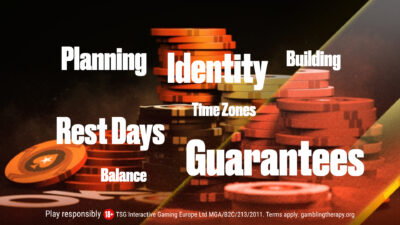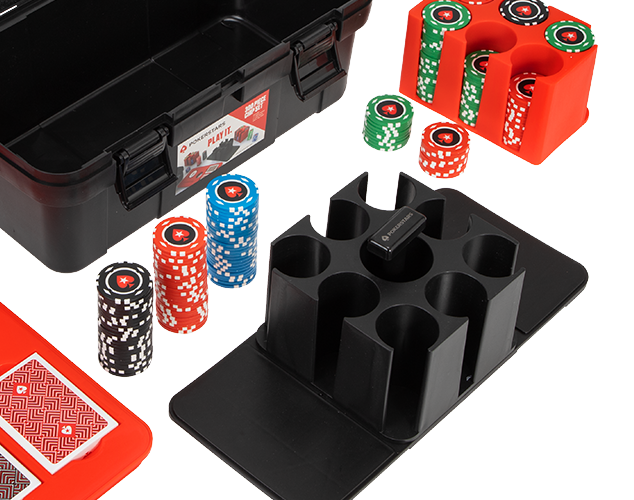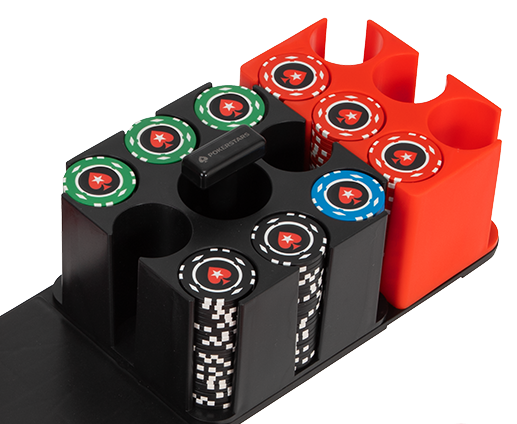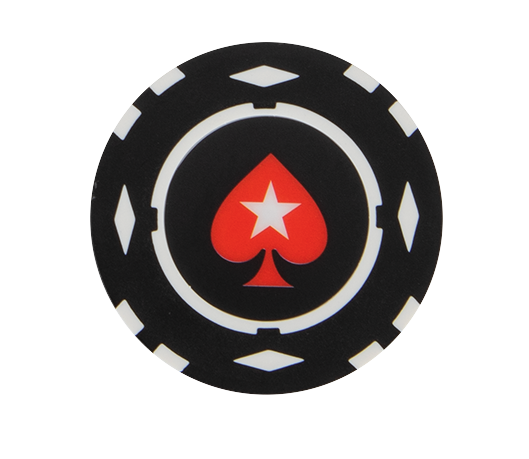by Adam “STUDSTOOD” Roberts
Another topic I want to cover for tournaments is getting staked or “pieced out.”
Being that tournaments have such a high short term luck factor, many players prefer not using their own money for buy-ins. This is all well and good, but if you are one of those players, you will have to be able to find sponsorship in one form or another in order to enter these events.
There are different ways to do this, but it is usually only possible after you have “made a name for yourself,” whether in cash games or having already done well in tournament play with your own money. I did not get staked until I had already done well in high limit cash games for a few years.
As I mentioned in an earlier blog, I like getting staked in both cash games and tournaments, especially if the deal is fair and with someone who can be trusted to act with honesty and integrity, as well as not “micromanaging.”
Some backers prefer staking players in tournaments as opposed to cash games. Their reasoning is that there is much bigger potential for a big one-time payoff, as well as the fact that they do not have to deal with the daily record keeping associated with regular cash game play. Also, when a backer stakes a player in live cash games, he/she may feel that there is a chance for “incorrect” records to be kept by the player. This cannot happen in tournaments, live or online, since the results are public knowledge. Nor can it realistically happen in online cash games since play histories are available from the site.
Personally, if I were a backer, I would look to stake someone trustworthy in daily cash games and use my share of the winnings to enter my player in various pre-determined tournaments throughout the year. As a backer, though, I would also have the option to enter my player in those tournaments even if he did not produce enough winnings to cover the cost.
There are many different options with regards to what type of deal I would agree to, whether the backer or the player.
Although I have never been in this situation as a backer, I have been in it as a player. Generally, the standard staking deal is to get fully staked (which includes buy-ins and associated expenses, i.e., airfare, rental car, hotel room, etc.) for a 50% split of the profits, with “make-up”.
Here’s how that would usually work.
Let’s say there are three $1500 events your backer wants you to enter. He/she would give you $4500 for the buy-ins, plus money for agreed expenses, say $1000 for the three weeks. If you do not cash in any of these events, your backer would have laid out $5500. The amount the backer has paid so far is called “make-up,” and before you reap any profits that money must be paid back.
That is, assuming the backer wants to continue doing business with you. If he/she does not, then your agreement is terminated, and you owe the backer nothing. Should you decide to resume backing in the future, you would then have to discuss up front whether the old make-up applies in the new arrangement.
In a typical long-term backing relationship, if you do cash in an event, you have to give back all the money that your backer has already put up before collecting the 50% profit due to you. Also, other expenses may need to be paid back first, like tipping, meals, travel expenses, etc. The particulars of a backing deal can vary wildly.
There can be numerous creative variations to these types of deals, and there are too many to mention. Some of the variations might be:
With any deal, it’s important to agree to the terms completely, and it’s best to have it in writing. You should also discuss and agree on tax responsibilities, whether or not you ever cash out. Remember, you will be given a buy-in receipt for most live tournaments you enter, and in many cases, tax forms will be issued by tournament officials when you cash, so there is a “paper trail” for those wins and losses.
I cannot advise you on how to handle this issue, but I strongly recommend discussing it with a qualified CPA (familiar with these types of transactions) prior to making these deals with a backer.
In my personal experiences with this particular issue, most of my backers wanted to remain “silent,” where I was responsible for 100% of the taxes even though I only reaped 50% of the profit. Although this may seem unfair, I did not think it was. After all, I was getting my expenses and buy-ins fully paid for, and 50% of the winnings. Although there was make-up involved, I thought that it was a fair deal for me to be responsible for 100% of the taxes on my gross tournament winnings. I just made sure I retained a quality accountant familiar with gaming tax law.
On the flip side, one of my backers, who is a well known high-limit player, requested that I give him a signed and notarized document stating how much his share of the profits were. I’ve also heard of arrangements where the player received a more than half of the profits as compensation for taking on the tax liability.
While poker players tend to be trustworthy, I do recommend signing and notarizing whatever deals you and your backer end up agreeing on, and that applies to both live and online, as well as for cash games and tournaments. There are plenty of stories of good partnerships that turn into a war when the player makes a big score. I have (briefly, lol) dealt with backers who tried to micromanage, “nickel and dime” me, “string me along” and go back on their word. Those can be expensive lessons.
As an astute poker player and businessman, you should be able to fairly quickly spot when you should “cut bait’ with these types of people. It may be disappointing in the short term, but, trust me, you will be better off in the long run, even if it means struggling on your own for a while, not being able to play in either cash games or tournaments for as high stakes as you’d like.
Some backers may not want anything in writing, but as the player you should at least show “good faith” by offering. Remember, regardless of how well you think you may play, how much success you have already had or how many accolades have been bestowed upon you, it is your backer who is still putting up his/her money, which means it is his/her risk. You should feel honored and flattered that someone is willing to do that, which means that you should make that person (or people) as comfortable as possible.
If you are truly a good enough player, and show honesty, integrity and a quality work ethic, your time will come.
In the meantime, you can find me in the $10/$20 and $30/$60 limit games in our Stud section, as well as in our weekend $215 buy-in tournaments for Stud games. Please check the starting times of each of those events under Tourney > Special in the PokerStars lobby.
Feel free to contact me with any questions, suggestions or thoughts at adamr@pokerstars.com.
See you at the tables!
Back to Top










